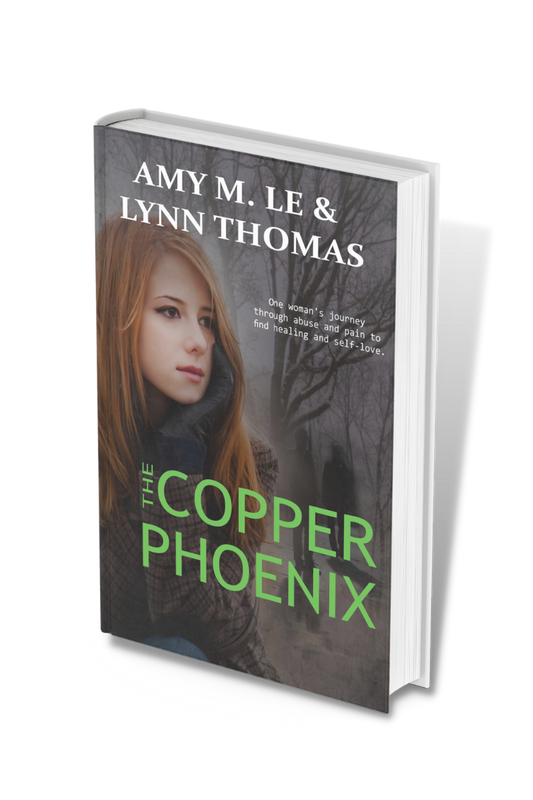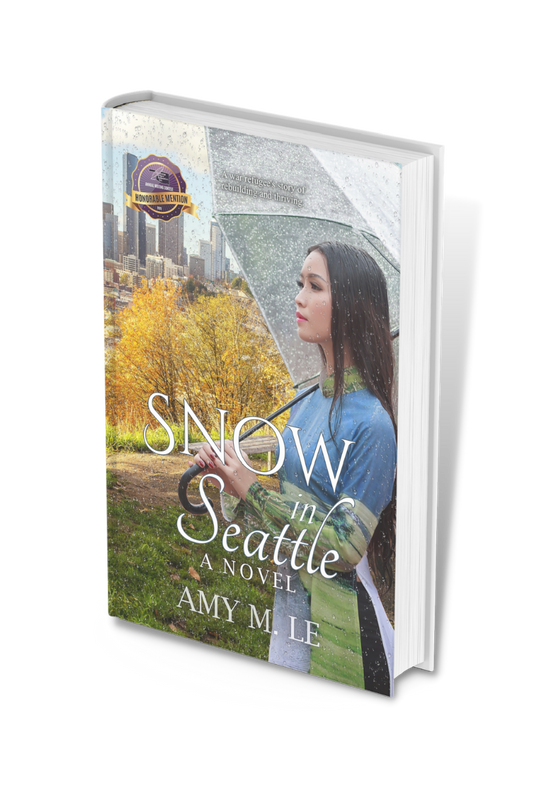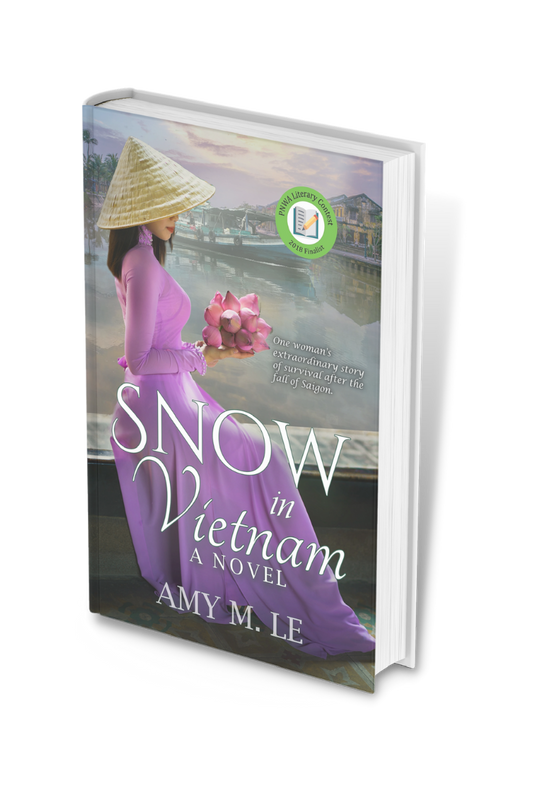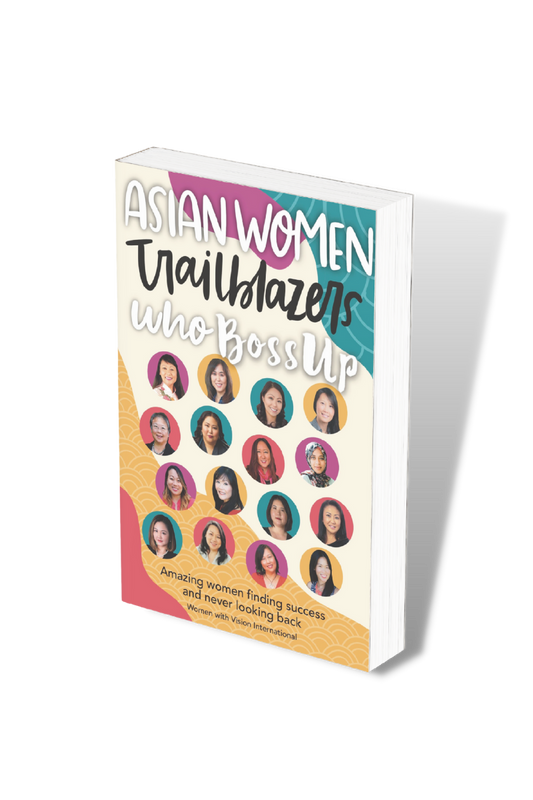Amy M. Le, CEO of Quill Hawk Publishing, talks with Staci Mauney, founder of Prestige Prose, about her career as an author and freelance editor.
QHP: What came first, writing or editing? And why did you pursue these avenues as a career?
Staci Mauney with Prestige Prose: For me, writing came first. I started writing my first book when I was around ten years old. In school, I thrived on writing assignments, and English was by far the class I did best in.
I decided to pursue these avenues as a career after more than fifteen years working in an office environment. I had reached a crossroads in my career: I was a successful grant writer and supervisor of a healthy living program at a local nonprofit, but I felt a desire to do more with my writing. I wanted to help people tell their stories and reach regular folks with the words I wrote. I realized that if I waited much longer, I would never venture outside my comfort zone at the office, so I took the leap in 2015 and used the experience I’d gained all those years prior to build my freelance writing and editing business.
QHP: What prepared you to become an editor?
Staci Mauney with Prestige Prose: Becoming an editor was a long and winding road. As I mentioned previously, I always thought of myself as a writer first, then an editor. In high school, I wrote and edited for my school newspaper as the editor-in-chief, and I went on to pursue a Bachelor of Arts in English with a minor in mass communications at Southwestern Oklahoma State University (SWOSU). As part of my mass communications studies, I joined the university newspaper staff, where we edited the staff writers’ work and set up the page layouts. At this point, I realized how much I enjoyed polishing other people’s words.
After I graduated from college, I took jobs where my writing and editing skills were put to use, even though those weren’t my primary duties. At the South Western Oklahoma Development Authority (SWODA), I edited all the press releases, annual reports, and brochures, among other things, before they were provided to the public. At Great Plains Youth and Family Services, Inc. (GPYFS), I wrote grants and promotional materials. When I started editing manuscripts for self-publishing authors, I took some time to become familiar with the Chicago Manual of Style, the style guide used by both traditional and self-publishing authors alike. 
QHP: What was something you didn’t plan for but proved to be a blessing?
Staci Mauney with Prestige Prose: I never planned to work from home, but when COVID-19 hit, it was a blessing because I was already set up in a home office with a routine.
QHP: Give us some behind-the-scenes to your daily routine. When do you write and when do you edit?
Staci Mauney with Prestige Prose: Every day is so different based on my clients’ needs. I typically work on my clients’ projects first, then my own. I often write for a stretch on Saturday afternoons with an online accountability group, and when work permits, I meet up in person with friends a few times a month. Finishing out my day with fifteen to thirty minutes of writing time can help me stay on track with my writing goals.
QHP: Tell us about your books and what's next.
Staci Mauney with Prestige Prose: I’ve published six devotionals in the Echoes of Joy series and one Christian cozy mystery, Death by Dice: A Bunco Club Mystery. I’m currently working on the second cozy mystery in the series, Stalked by Dice.
In 2011, I started a devotional blog with the encouragement of a friend, and in 2017, I published my first devotional book based on entries from my blog. The thing that sets my devotionals apart is that each one is only thirty days (the Christmas one is twenty-five days), and the entries are short and written for those with busy schedules who are looking for something to point them to God. Through my devotionals, people get to know my Yorkshire terrier, Lilly, and read about our adventures and the lessons God has taught me through her. Lilly isn’t with me any longer, but her memory lives on through my writing. Her portrait graces the cover of Echoes of Joy: A Devotional for Animal Lovers, which means that it’s my favorite cover, of course.

My novel started as a novella in 2016 (which means my goal was about 20,000 words), and I realized I had enough material for a novel—I just needed to fill in the details. Death by Dice became a novel of 65,000 words that took me five years to complete, and I published it in October 2021.
QHP: What advice do you have for others who want to pursue a career in editing and/or writing?
Staci Mauney with Prestige Prose: My best advice is to network and join writing groups and organizations. One of the first things I learned when I went out on my own is that, while writing may be something I do on my own, it’s not something I can do alone. I’m a member and past president of the Oklahoma Writers’ Federation, Inc. (OWFI), as well as several local writing groups like the Oklahoma City Writers, Inc., Oklahoma Romance Writers Guild, and Tornado Alley Sisters in Crime. I’ve also joined several professional editing associations, including Christian Editors Connection (CEC), and am a Gold member of the Christian PEN: Proofreaders and Editors Network.
QHP: What is an unrealistic expectation writers have about the editing process?
Staci Mauney with Prestige Prose: Two of the most unrealistic expectations I see most often are around what a freelance editor does and the timeline for completion of an edit.
Some people think that their editor will completely rewrite their book, but an editor’s job is to point out areas that could be revised and made stronger, not rewrite the book for you. That’s not to say that you can’t hire an editor to rewrite the book, but you would need to communicate that expectation clearly to the editor.
Other people have a set deadline in mind, but they wait before they reach out to an editor. Experienced editors often book up months in advance, so that’s something to keep in mind when setting your publishing schedule.
QHP: Why should writers hire an editor and what kinds of editors are there?
Staci Mauney with Prestige Prose: Freelance editors help writers make their manuscripts shine. We take what’s been written and make it stronger. Writers may want to hire an editor for a number of reasons—for help with plot, structure, or character development; to make the language used flow more naturally and appeal to the reader; and to catch any typos.
As many as nine different types of editing exist, and I do four different types: developmental editing, line editing, copy editing, and proofreading.
A developmental edit is a big picture edit and is one of the first steps in the editing process. Some writers don’t need a developmental edit. If you’re good at plot and structure, character development, and dialogue, or you have a writer friend who can help you with these things, then you most likely do not need a developmental editor.
A line edit is a line by line look at the manuscript where I revise sentences for clarity and flow.
A copy edit is conducted to find inconsistencies and grammatical errors, and I also make sure the manuscript adheres to the Chicago Manual of Style (and the Christian Writer’s Style Manual if it’s a Christian writing project). A copy edit can be combined with a line edit.
A proofread is the last step in the editing process and is not a revision. It should be conducted only after the content has been finalized and occurs right before the manuscript is published.
QHP: If an author is not happy with an editor's work, what should they do?
I would suggest talking to the editor and expressing your concerns. See if the editor can get on the same page with you and fulfil your request. Communication is key. One of the first steps in hiring an editor is to get a sample edit up front so that you know what the editor’s work looks like. You’ll also want a contract that spells out all the pertinent details. You might not know exactly what kind of editing you need, and that’s okay. When you receive the sample edit, you’ll see what the editor can do for you.
QHP: What are the most common mistakes writers make?
New writers often overuse passive voice, switch points of view mid-paragraph or mid-scene, and tell rather than show. These are all issues that can be resolved through revision and with the help of a good editor.






